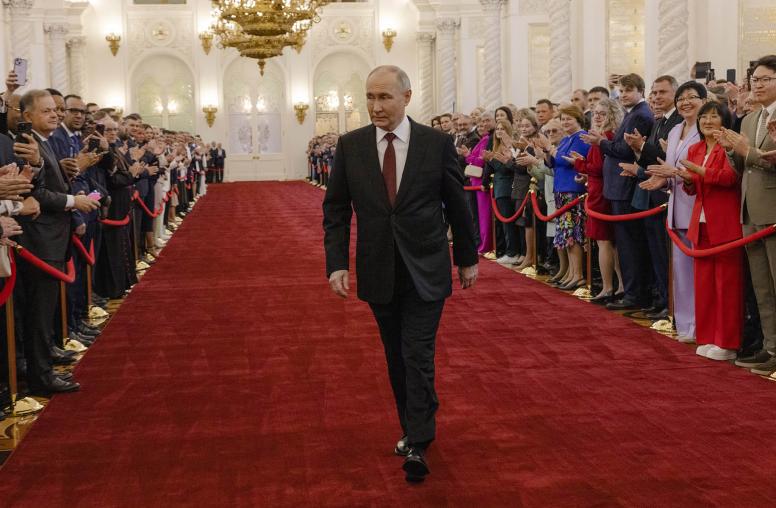Prosecuting the Crime of Aggression in Ukraine
A Discussion on Creating a Special Tribunal for the Crime of Aggression, with Remarks from President Volodymyr Zelenskyy
As investigations continue collecting evidence of atrocity crimes committed in Ukraine, Ukrainian officials — both in the government and the Verkhovna Rada — have led the charge for establishing an international, treaty-based Special Tribunal for the Crime of Aggression. Such a tribunal would apply the definition of aggression that was established through the Rome Statute to hold Russian officials accountable for the war against Ukraine. But while the proposal has received support from multilateral organizations, including the European Parliament, no treaty has been promulgated to date.
On December 7, USIP, the Atlantic Council’s Eurasia Center and the Ukrainian Embassy to the United States held a conversation on the creation of a Special Tribunal for the Crime of Aggression.
Continue the conversation on Twitter with #HoldRussiaAccountable.
Speakers
Lise Grande, welcoming remarks
President and CEO, U.S. Institute of Peace
President Volodymyr Zelenskyy, keynote remarks
President of Ukraine
Andriy Yermak
Head, Office of the President of Ukraine
Andrii Smyrnov
Deputy Head, Office of the President of Ukraine
Rep. Bill Keating (D-MA)
U.S. Representative from Massachusetts
Rep. Joe Wilson (R-SC)
U.S. Representative from South Carolina
Ambassador Oksana Markarova, welcoming remarks
Ukrainian Ambassador to the United States
Anton Korynevych
Ambassador-at-Large, Ministry of Foreign Affairs of Ukraine
Lesia Zaburanna
Member, Parliament of Ukraine; Chair, Subcommittee on Public Expenditures
Ambassador David J. Scheffer
Senior Fellow, Council on Foreign Relations
Ambassador William B. Taylor, moderator
Vice President, Russia and Europe Center, U.S. Institute of Peace
Ambassador John Herbst, closing remarks
Senior Director, Eurasia Center, Atlantic Council



